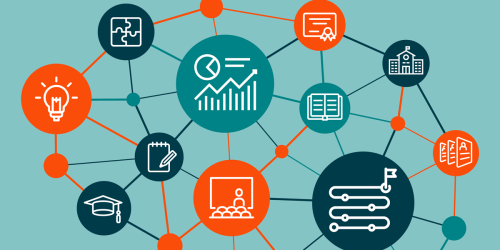This classic research synthesis by Researcher Kathleen Cotton cites classroom, school, and district practices that research has shown to foster positive student achievement, attitudes and social behavior.
This classic brief reviews research on the relationship between teachers' classroom questioning behaviors and a variety of student outcomes, including achievement, retention and participation.
According to Karen Martin, a teacher and instructional coach in Alaska, the Northwest Rural Innovation and Student Engagement (NW RISE) Network builds connections.
Hiring more teachers of color benefits all students academically and builds the school community—and it's the right thing to do.
Jacqueline Raphael highlights a set of best practices that emerging networks can follow and makes a case for using an experienced intermediary organization to serve as the network's “backbone.”
Bringing people together Is an investment that pays off—but how do you cover costs to build educator networks?
Intermediary partners can have a strong, positive impact on education networks. What are the qualities that make a good intermediary?
Intermediary organizations that serve as the backbone of an education network can be integral to a network’s success. Use this checklist to assess whether a potential intermediary partner can fulfill the core capacities to your emerging network.
Steve Fleischman recommends Wildflowers, by Jonathan P. Raymond—a book that illuminates how a district put its whole-child credo into action and may inspire you to do more and better.
Read how the NW RISE network that connects educators in rural schools across the Northwest inspired a new network in a remote Alaska school district the size of West Virginia.
For students in a writing class in a rural Idaho high school, sharing writing with peers in other states pushed their comfort zones. What did the students learn from this networking experience?
Networks are a promising strategy for rural teachers to overcome the challenges of isolation. Danette Parsley provides three takeaways from our role in establishing a rural network in the Northwest.
When forming a professional learning network, how do you ensure your efforts are meaningful and sustainable? This resource will help you start your network with a clear purpose and solid direction.
What does a high-performing education network look like, and what steps can emerging networks take to get there?
Nanci Schneider gives a districts a school improvement formula for juggling local mandates and meeting state standards: Stay focused on student achievement and build a network.















